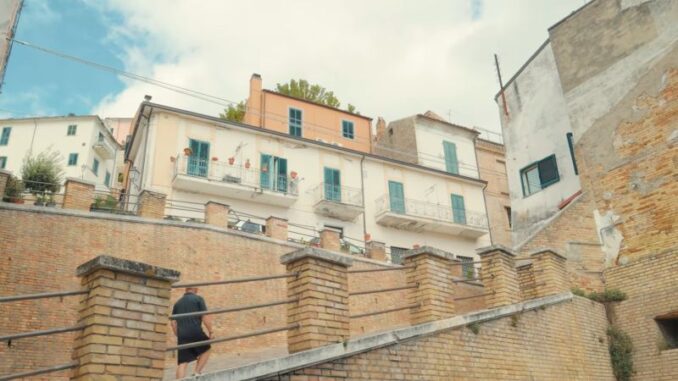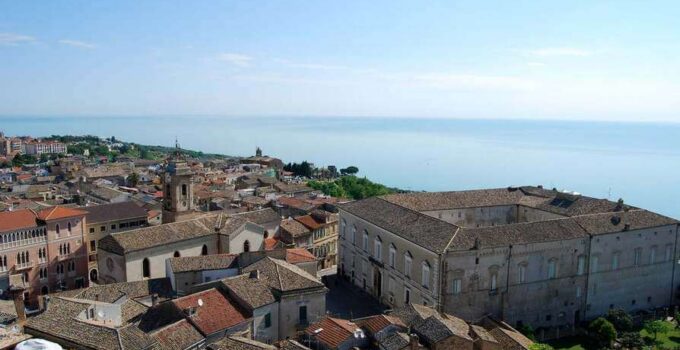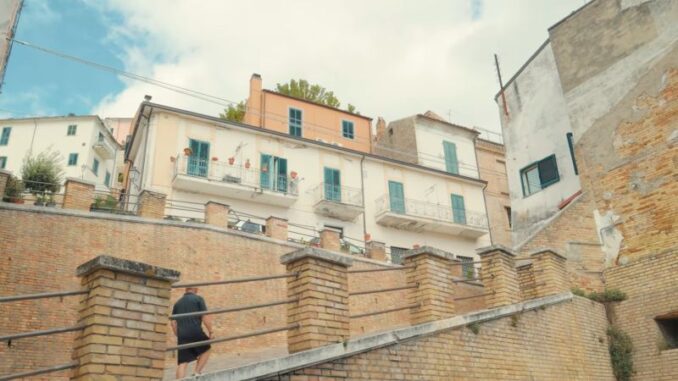Just over an hour’s drive east of Rome, a lesser-known Italian treasure awaits: Abruzzo. This land is remarkably distant in spirit from the bustling capital, with wild valleys and untouched mountain landscapes that seem to belong to a different world altogether.
Abruzzo is a region of untamed hills and mountains, where one-third of its area is set aside for parks and reserves, earning it the title of “the greenest region in Europe”.
Along the Adriatic Sea, Abruzzo is located in central Italy and divided into four provinces: Chieti, L’Aquila, Pescara, and Teramo. Each serves as an administrative center and a cultural hub, contributing to the region’s rich diversity.
Some argue the region’s name derives from the Latin “Aprutium”. While some believe this name refers to “the land of boars” (aper – boar), others say it may be rooted in the Latin word “abruptum”, which translates to “rough”.
Why is Abruzzo a Hidden Paradise?

Source: freepik.com
Abruzzo Italy is a country within Italy, both geographically and culturally. Stretching from beautiful sandy beaches on the Adriatic to the rugged peaks of the Apennines, this province offers visitors a unique dual experience: swim in the sea one moment and climb Gran Sasso (2912m), the highest peak of the Apennines, the next.
Abruzzo is full of contrasts that make it enchanting. The coastal Abruzzese’s fast-paced life and mountain villagers’ relaxed rhythms complement each other in a harmonious balance.
The people of Pescara, typical coastal Abruzzese, rush through breakfast, have a quick pasta at lunch, and end the day with a brisk evening stroll. However, as one ascends to higher altitudes, time seems to slow down; even watches tick a little more gently in the mountains.
Whether fast-paced or slow-living, the people of Abruzzo have a signature calm. Even in cities, there’s a notable absence of rush or noise. The way of life here is clear: wait, then continue – a philosophy that brings peace to locals and visitors.
The Beauty of Abruzzo’s National Park
Before human settlements spread across Italy, the lands of Abruzzo were home to brown bears, Apennine wolves, chamois, and many other species. As centuries of hunting and habitat clearance took their toll, these animals became scarce, nearly driven to extinction.
The Abruzzo National Park was founded in 1923 to protect these magnificent creatures from disappearing entirely. Within the park’s protected territory, rugged mountains reach over 2,000 meters altitude, while the lively Sangro River flows through the landscape, cutting through narrow gorges and vast valleys.
Traditional Apennine villages dot the mountains, blending seamlessly into the pristine environment.
Corno Grande – The Pinnacle of the Apennine Peninsula
The Gran Sasso d’Italia, which translates to “Great Rock”, is one of the grand peaks of the Apennines, stretching northeast-southwest. Located around 150 km east of Rome, near L’Aquila, it is a popular starting point for nature lovers and mountain enthusiasts who come to conquer its heights.
Corno Grande (meaning “Great Horn”), rising to 2,912 meters, is a delight for climbers. The summit offers a breathtaking panorama where the Adriatic Sea sprawls to the west and the south; the range extends to Monte Prena and the white cliffs of Monte Camicia. To the southwest, the vast greenery of the Campo Imperatore plateau lies in stunning contrast.
Pescara – Where Coastline Meets Culture
Nestled along Abruzzo’s Adriatic coastline, Pescara is a lively blend of beach culture, history, and modern charm. Known for its long sandy beaches, Pescara attracts visitors who relax by the sea while enjoying the bustling promenade with cafes, seafood restaurants, and shops.
Despite its modern facade, the city has roots that stretch deep into history; the remains of an ancient Roman port can still be found here, showcasing Pescara’s role as a trade hub over centuries.
At night, the city comes alive with a vibrant nightlife, making Pescara a must-visit gem on the Adriatic coast.
Abruzzo’s Wines and Specialities
Abruzzo contributes to Italy’s wine production as the 5th Italian wine region. The region is famed for its indigenous Montepulciano red grape, which covers over 50% of its vineyards and highly prized white Trebbiano.
A common point of confusion among wine enthusiasts is “Vino Nobile di Montepulciano,” which refers to wine from a Tuscany town unrelated to Abruzzo’s Montepulciano grape.
If a rose wine is offered in Abruzzo, it will likely be a modern, delicately coloured variety with fresh, fruity aromas.
Yet, when locals want to showcase their pride in regional winemaking, they present Cerasuolo d’Abruzzo, an elegant, cherry-hued rose made almost exclusively from Montepulciano grapes.
Cerasuolo d’Abruzzo pairs beautifully with salmon, shellfish, focaccia, cheeses and cured meats, and traditional red meat dishes like the region’s famous lamb skewers, Arrosticini.
Gastronomic Heritage of Abruzzo: From Coast to Mountains
Abruzzo’s cuisine is a testament to its diversity, with culinary traditions that span from the Adriatic coast to the Apennine highlands.
Preserving its culinary authenticity, Abruzzo is home to a rare array of traditional dishes, particularly in the Teramo province, celebrated among Italians for its gastronomic diversity.
Abruzzo’s cuisine includes everything from salt cod and lamb to mountain fare like lentils, gnocchi, and lamb ragu.
The iconic Arrosticini, skewers traditionally made with lamb or mutton and sometimes seasoned with Mediterranean herbs, remain one of Abruzzo’s most beloved dishes.
Originally a shepherd’s staple, Arrosticini is now a popular delicacy in Italian cuisine. It’s grilled simply over charcoal and generously salted.
Abruzzo’s Enduring Charm
Abruzzo represents one of those rare conglomerations of natural beauty, depth of culture, and gastronomic richness that leaves an indelible mark upon the souls of all who visit it.
Abruzzo has everything from its unspoiled wilderness to its best wines, from warm-hearted locals to a timeless experience.
It asks the visitor to manage their time, enjoy every instant, and come upon an unseen Italy tied to its roots. Abruzzo is a place one will never forget, where tradition and modernity are in harmony.
Walking through Abruzzo would become highly unmistakable. One would feel that nature and tradition balance harmoniously, as one would be walking into a place of time.







